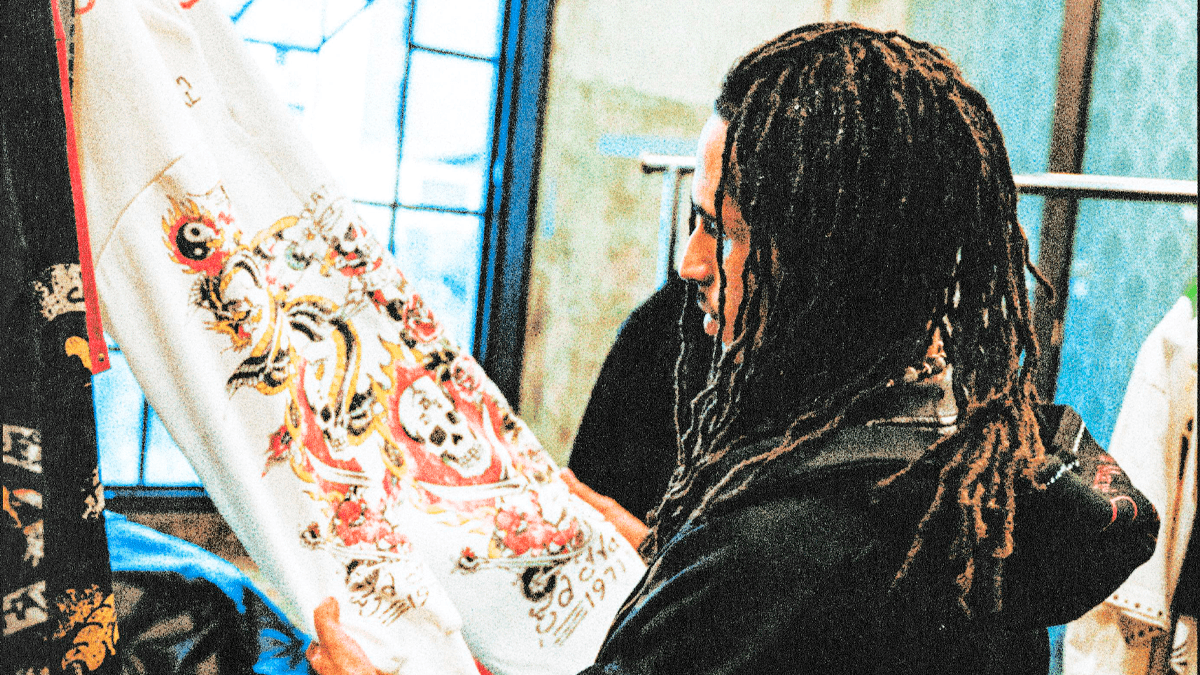10 ways to help people and support projects during the pandemic
With Brazil at the moment of publishing this article occupying the 2nd place in the world ranking of coronavirus infections, even with underreporting, the situation for many Brazilians is getting more complicated by the day. In a country historically affected by social inequality, it has never been easy for many of us. But now, with the restriction measures imposed by state governments, in addition to the complete omission and lack of commitment from the federal government to protect the population, the pandemic intensifies, and many businesses remain closed, restaurants have had to adapt to delivery or close their doors without forecast for return. Many health professionals lack adequate resources and equipment to contain the virus, and people who were already living in at-risk situations before all this began find themselves even less privileged and supported by public policies.
On the other hand, some of us still have the privilege of working from home or using the quarantine time to dive deep into projects and freelancing. It is clear that each person faces their own battle during the pandemic. And it is important to emphasize that we cannot save Brazil, but perhaps we can collaborate on a small yet significant scale. In summary: it’s not easy for anyone, but if it’s not that hard for you, let’s help someone.
We have compiled a list of 10 initiatives for those of you who can and want to direct positive actions to support people who are facing even more uncertain times in the current chaos. These are entities, organizations, and sectors that are receiving donations to support those who need it most.
1 - Donate blood
Many blood banks are experiencing low stocks due to the social isolation rules adopted by the population or imposed by the government. As a result, hospitals find themselves in a critical situation when there are patients who need blood transfusions in emergencies. A single donation can save up to four lives. Remembering that blood banks are environments that follow strict asepsis rules by the standard, and given the current situation, many are scheduling donations by phone to avoid crowds. Some apps like Uber and 99 are offering free rides in some cities for those wanting to donate blood. You can check the donation requirements here and inquire about scheduling directly with the blood centers in your city.
2 - Collaborate with the Articulation of Indigenous Peoples of Brazil
The new coronavirus has already affected around 44 indigenous peoples. Due to the communal lifestyle of these peoples, the spread of the virus happens more rapidly. So far, the state with the highest concentration of deaths among these populations is Amazonas. The national association representing indigenous peoples all over the country is running an online fund that will be directed towards purchasing food, medication, and hygiene materials in the villages.
3 - Help MTST in the fight against the pandemic
Even during the pandemic, we have read news about the São Paulo government acting in eviction actions. The Homeless Workers’ Movement is in the 5th stage of its campaign to collect and deliver food, hygiene and cleaning kits, hand sanitizer, and medications in the outskirts of various cities across Brazil. You can contribute by donating amounts ranging from R$ 20 to R$ 150 or make a direct donation via bank transfer. Access the fundraiser here.
4 - Help homeless people in preventing coronavirus
São Paulo is the epicenter of the pandemic. As of now, there are about 65,000 cases, with 5,000 deaths. At a time like this, preventing the transmission of the virus becomes urgent. However, not everyone has resources to adopt isolation. Approximately 24,000 people live on the streets in the city, and about 12,000 are in shelters. That’s why the Association for Rescuing Citizenship for the Love of Humanity is asking for contributions to buy soaps, hand sanitizers, and masks for those living in these centers. You can donate through bank transfer. The details are on the association's website, at this link.
5 - Collaborate with the Combat Kitchen to help feed vulnerable people in São Paulo
The Combat Kitchen project was an alternative found by some restaurants in São Paulo to continue their operations and still help those who need it most at this time. Utilizing the workforce and facilities of the restaurants, the idea is to produce 600 daily meals (12,000 in a month) that are distributed daily in the central region of the city as well as in vulnerable communities affected by the crisis. Currently, participating restaurants include Isla Café, Cais, Corrutela, and Pitico. Donation amounts range from R$ 20 (which can feed a person for a day) to R$ 600 (which can feed a person for a month). You can donate by accessing the project on the Abaca$hi platform.
6 - Support Black and marginalized families with UneAfro
A campaign to support Black families in communities in São Paulo and Rio de Janeiro has been launched and is already in its 3rd phase. By contributing, you support residents of the outskirts, including teachers and students from preparatory courses who are without income, and also facilitate the distribution of basic food baskets and cleaning and hygiene kits in the territory of each nucleus. Finally, it favors financial aid for quilombos in 5 states in Brazil. Access the fundraising link to learn more.
7 - Collaborate with the Emergency Fund for Health - Coronavirus Brazil
In light of the possible collapse of the SUS - Unified Health System, which is overloaded in various regions of the country due to the high number of coronavirus infections that required hospitalization, some initiatives have focused on directly helping the health sector in the country. The Emergency Fund for Health - Coronavirus Brazil was created to raise resources for institutions that are at the forefront of combating the pandemic. Some of the beneficiaries include the Oswaldo Cruz Foundation, the Hospital das Clínicas of the Faculty of Medicine of USP, the Santa Casa de São Paulo, and the NGO Comunitas, which supports people in at-risk situations. The money will be used to purchase hospital equipment, to test for coronavirus diagnostics, medications for treatment, in addition to materials for the protection of health professionals. You can get more information and make your donation through the BSocial platform, at this link.
8 - Buy a photograph and help treat cancer patients
With social attention and public resources directed towards the pandemic, people already facing health problems feel even less supported and are under serious risk as a vulnerable group for covid-19 infection. The Nossa Casa Association is a non-profit organization working at CRIO - Integrated Oncology Center in Fortaleza. The entity supports the treatment of cancer patients who encounter socioeconomic difficulties in facing the disease, providing accommodation, comfort, and humane care throughout this process. CRIO is facing serious financial difficulties, and the possibility of closing is real, while there is not enough funding to ensure the maintenance of the structure, health professionals, and medication procurement. Most of the income was obtained through donations that have decreased in the last 2 months, and from a store that was closed due to restriction measures. Photographer André Iosolini has developed a donation scheme that involves buying a printed photograph for R$ 150, so that part of the value will cover printing and delivery of the photograph, while the rest will be donated to the Nossa Casa Association. You can collaborate through the link on the Abaca$hi platform. Or donate any amount directly to the institution. Check out: abacashi.com/p/ajudenossacasa
9 - Buy or donate masks and support the work of vulnerable women
Given the current situation, wearing masks when leaving the house is essential. Remember that a mask is not a vaccine and does not immunize anyone. However, they drastically reduce the chances of coronavirus infection and especially prevent an infected person—who may not show symptoms—from spreading the virus to others around them. By purchasing masks produced by the #EuCuido initiative, you contribute to a movement that works on professionalization and the generation of dignified income for women in vulnerable situations. It is also possible to donate masks to one of the institutions registered on the site. The masks will be produced by these women and sent directly to those in need. You can get your mask or donate directly at the link: eucuido.org.br
10 - Buy local
Small businesses are responsible for more than half of formal jobs in the country, according to SEBRAE. We always emphasize the need to support national brands, preferably small ones, and those transparent about their creation and manufacturing processes. Huge companies will not be affected by the crisis to the same extent as small businesses. From the market in your neighborhood to a clothing brand, consuming local is synonymous with stimulating the economy without necessarily exploiting workers, as is the case with large corporations that produce on a global scale but thereby cheapen labor and disrespect labor laws, creating a problematic cycle of poverty and consumption.
Are you going to order delivery? Try to order directly from the restaurant. Apps take a significant percentage of delivery fees, and delivery drivers are out there at their own risk. There are no labor rights discussions in this area. Will it be more expensive? Probably yes. But you will compensate the delivery drivers and the restaurant more fairly and responsibly.
Reconsidering our consumption patterns at this moment is an urgent issue and also a necessary transformation. And since we have the privilege to reflect on this, we bear the greatest responsibility for the changes that are so eagerly awaited in the "new normal." In a world where so few hold the majority of resources, and so many others lack access, who will you buy from now?
If you know of other initiatives focused on helping people affected by the pandemic in Brazil, share so that more people can also help. It doesn’t even need to be said - but let’s say it - that unity is strength, and increasingly it’s us for us.
See others like this





